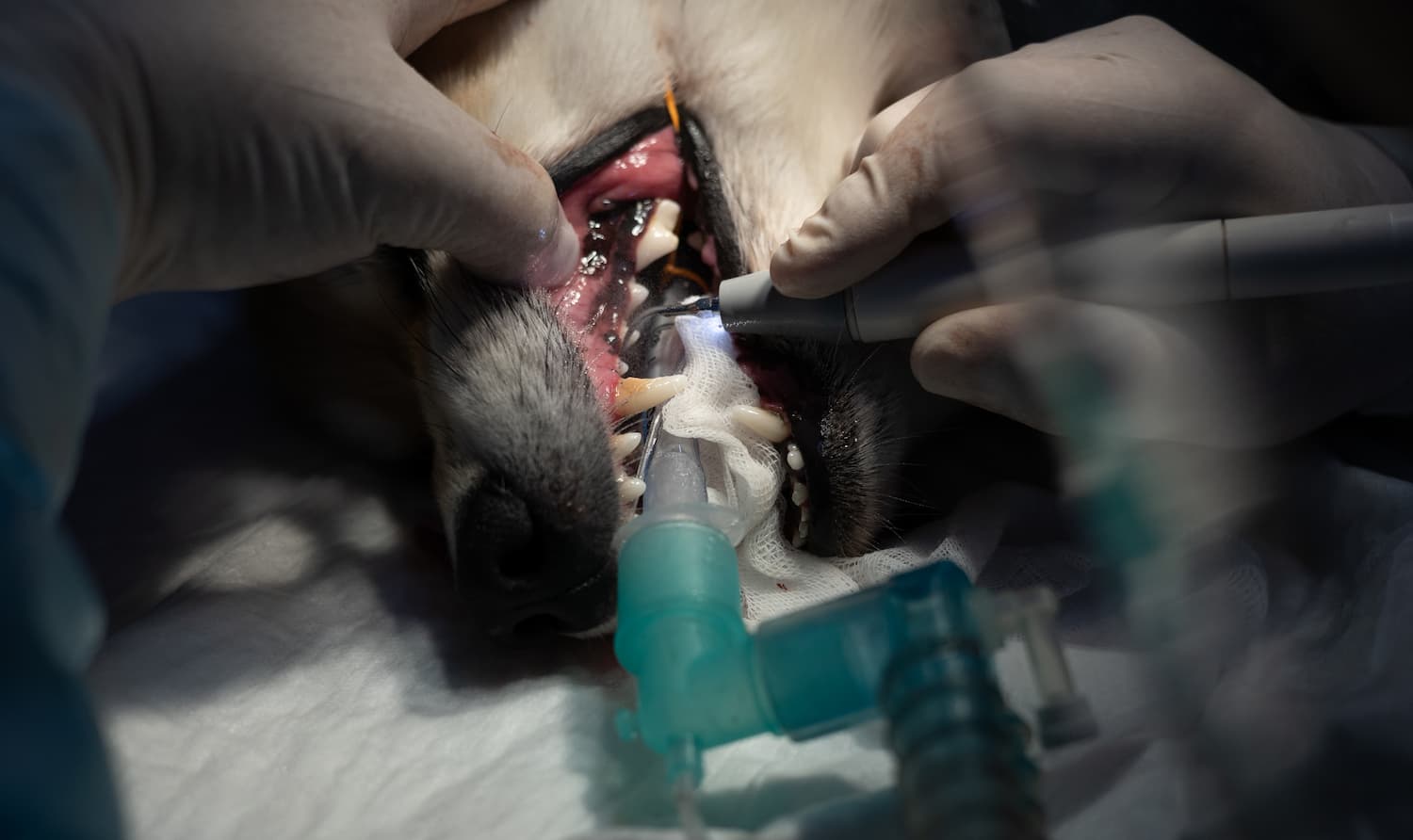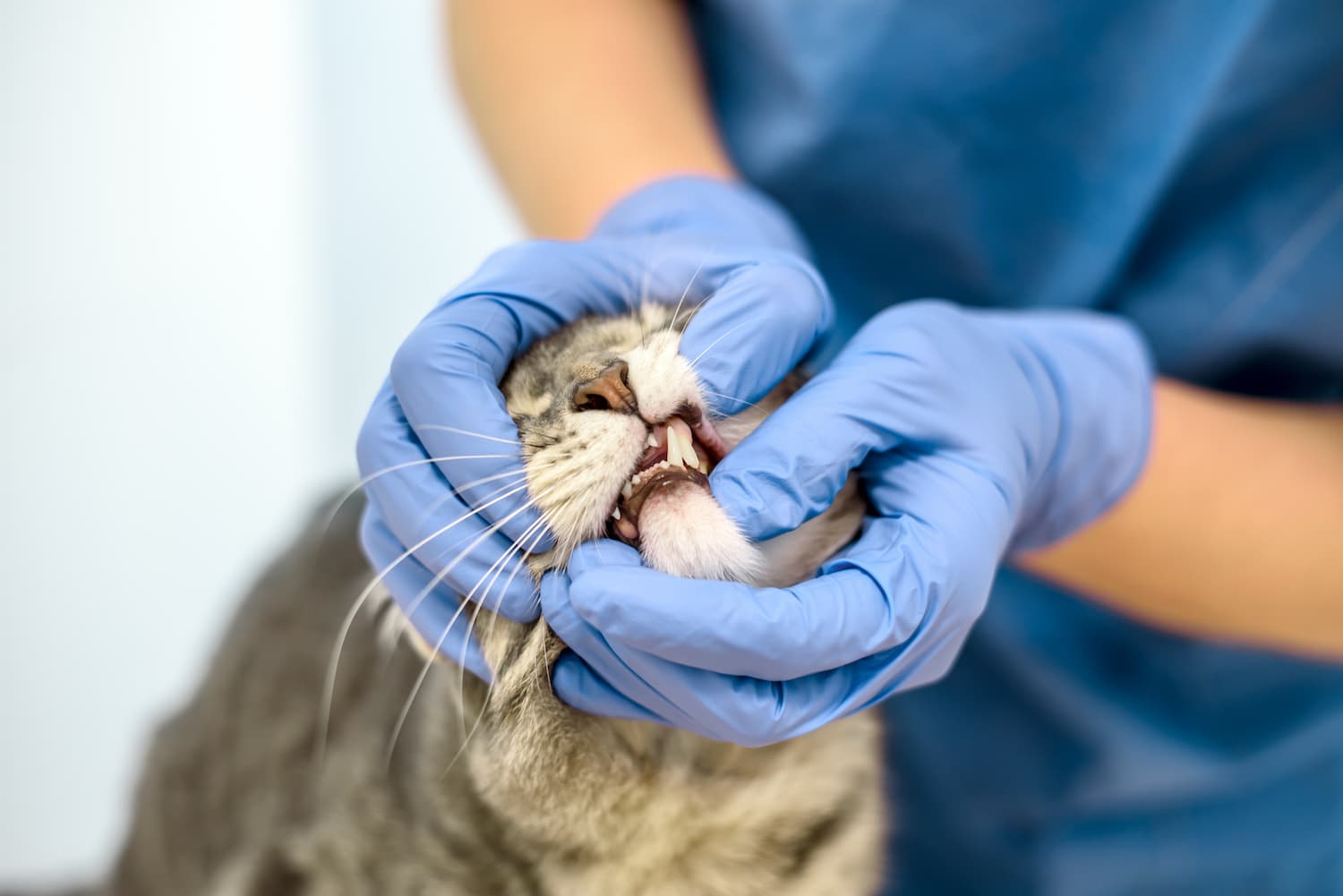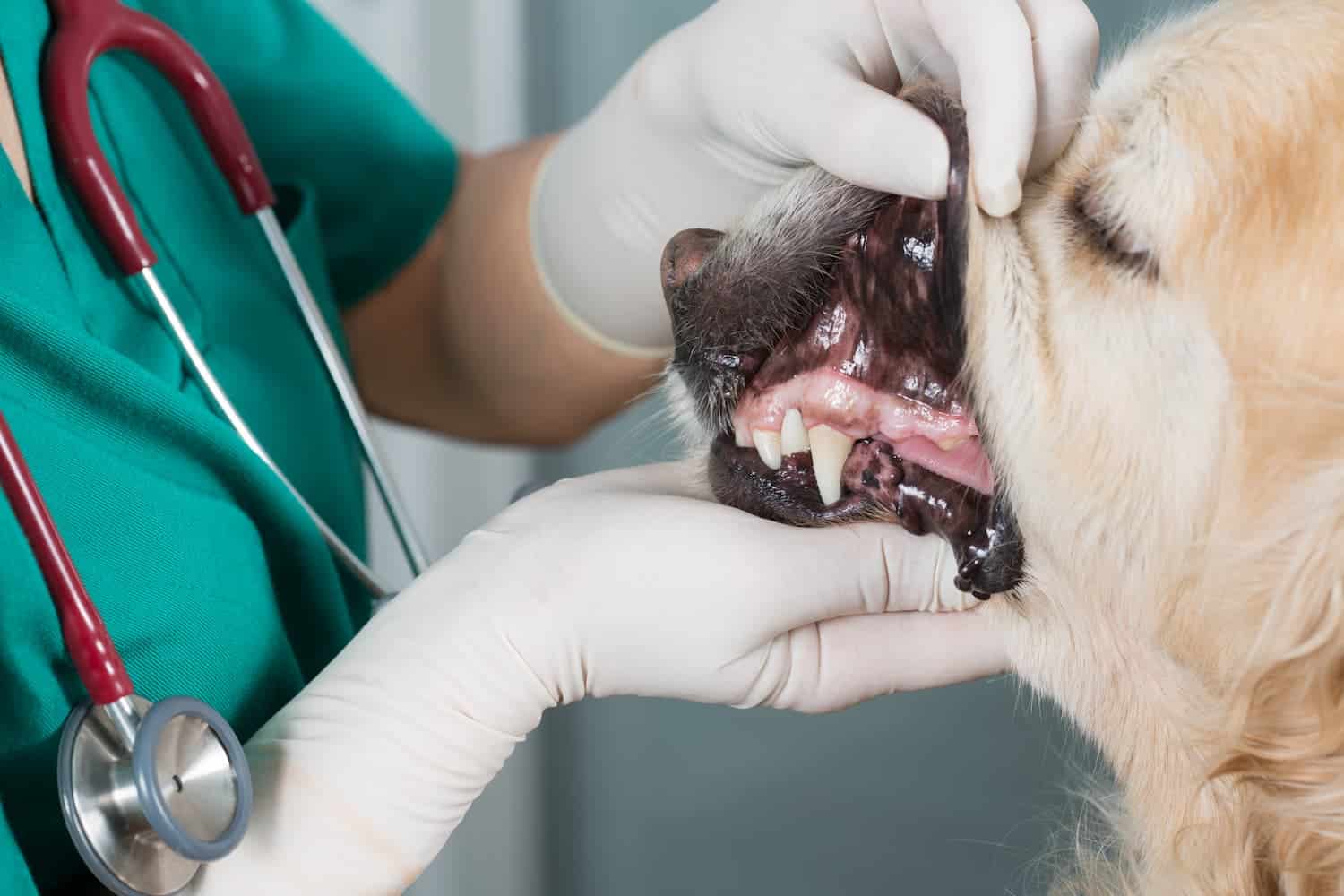Comprehensive Pet Dentistry and Dental Surgeries at Minnehaha Animal Hospital
Dental disease is a silent but serious threat to your pet’s health. It is a key factor in your pet’s overall well-being. When plaque builds up on your pet’s teeth, it harbors bacteria that can eventually enter the bloodstream, leading to serious complications such as heart disease, kidney disease, and liver disease. At Minnehaha Animal Hospital in Minneapolis, we believe that regular dental care is essential for preventing a wide range of health issues.
Many pets show signs of dental disease by the time they are three years old. Regular dental exams and cleanings can help catch problems early, ensuring your pet enjoys a healthy mouth and a happy life. Our experienced veterinarians and staff can provide routine check-ups, cleanings, and necessary treatments to ensure your pet’s oral health is in optimal condition.

What Happens During a Dental Exam?
A comprehensive dental exam is a vital component of your pet’s preventative care routine. At Minnehaha Animal Hospital, our experienced veterinarians perform a thorough dental exam as part of your pet’s routine wellness check. This evaluation includes assessing for signs of dental disease, such as plaque buildup, tartar, inflamed gums, and bad breath. If dental disease is detected, we use a grading system to determine the severity of the condition:
Grade 1: Gingivitis: This is the earliest stage of dental disease, characterized by mild gum inflammation. This condition is often caused by plaque buildup and can be reversed with appropriate treatment. If caught at this stage, a professional cleaning and improved home care can restore your pet’s oral health.
Grade 2: Early Periodontitis: As dental disease progresses, the inflammation spreads throughout the gum tissue. At this stage, your pet may experience pain. Their breath might smell bad too. Although this condition is more serious, professional treatment combined with diligent home care can still prevent irreversible damage.
Grade 3: Moderate Periodontitis: At this stage, the gum tissue is significantly affected by infection and calculus (tartar). The gums may show redness, bleeding and recession. They’re probably not enjoying their food much and their breath is really bad. This stage can result in tooth attachment loss, and in some cases, damage may be irreversible without surgical intervention.
Grade 4: Advanced Periodontitis: The final stage of dental disease is marked by chronic bacterial infection that destroys the gums, teeth, and even the underlying bone. Your pet will be in a lot of pain and might not want to eat. The infection can spread to other parts of their body, like the heart, liver, and kidneys. Dental surgery, including extractions, is often necessary at this point to alleviate your pet’s pain and prevent further complications.



Dental Care for Your Pet: Procedures and Aftercare

Dental Cleaning Process
If your pet is diagnosed with dental disease, our veterinarians will recommend dental cleaning. This procedure involves a thorough cleaning of your pet’s teeth, including areas beneath the gumline where bacteria and plaque tend to accumulate.
We know you’re worried about your pet, especially when it comes to anesthesia. At Minnehaha Animal Hospital, we take several precautions to ensure your pet’s safety. Before the procedure, we recommend pre-anesthetic blood work to check your pet’s liver, kidneys, and other vital body systems. For pets aged seven years or older, blood work is required. This helps us determine if your pet is healthy enough for anesthesia.
Depending on the severity of the dental disease, dental x-rays may also be necessary to assess the health of the tooth roots and jawbone. If X-rays reveal significant damage or infection, teeth may need to be extracted to relieve pain and prevent the spread of infection.
Pre-Surgical Instructions for Pet Owners
Once the procedure is scheduled, our staff will provide you with detailed pre-surgical instructions to help you prepare your pet for their dental cleaning or surgery. Follow these pre-surgical instructions:
No food after 8:00 p.m. the night before surgery. Water should remain available, but food should be withheld to reduce the risk of aspiration during anesthesia.
Drop off your pet between 7:30 a.m. and 8:00 a.m. on the day of the procedure. Arrive early to allow for check-in and any necessary paperwork. Bring any medications, notes from the vet, and comfort items. Please leave collars and leashes with us.
When you arrive at the clinic, we will conduct a brief intake process to gather information about your pet’s recent health and behavior. A surgery technician will then go over the procedure in detail, review the treatment plan, and answer any questions you may have. A discharge appointment will be scheduled to discuss the procedure and provide post-operative care instructions.
By the time you leave Minnehaha Animal Hospital, you’ll have a clear understanding of what to expect during your pet’s dental procedure, and you can rest easy knowing that our experienced team will be caring for your pet every step of the way.
Post-Procedure Care
After your pet’s dental cleaning or surgery at Minnehaha Animal Hospital, we will do close monitoring for any complications and administration of pain medications as needed. When you return for your discharge appointment, we’ll discuss what to expect during the recovery period and provide guidance on how to care for your pet’s mouth at home.
In many cases, pets recover quickly from dental procedures and show an immediate improvement in their comfort level. Your pet may experience improved comfort, increased appetite, better breath, and increased energy levels, leading to a higher quality of life. Proper aftercare, including any medications prescribed by our veterinarians, is important to ensure a full recovery.
Protect Your Pet's Oral Health | Schedule a Dental Check-Up Now!
We love helping pets have healthy smiles! At Minnehaha Animal Hospital, we’re committed to providing top-quality dental care for your pets. Regular dental cleanings, combined with good home care, can prevent many of the serious health issues associated with dental disease. Whether your pet needs a routine cleaning or a more complex dental surgery, our experienced team is here to help.
Contact us at (612) 825-4427 to schedule an appointment and learn more about our dental services. We look forward to helping your pet achieve a healthy, happy smile!
Frequently Asked Questions About Pet Dental Care
Why is general anesthesia necessary for dental procedures?
While a groomer may brush your pet’s teeth, this is very different from a professional dental cleaning. Approximately 60% of each tooth is below the gumline, where periodontal disease often begins. To properly clean your pet’s teeth and address underlying issues, we must access these areas, which is impossible on an awake pet. Anesthesia ensures that we can thoroughly clean and examine every part of your pet’s mouth, preventing long-term health issues.
What are the signs of dental disease in pets?
Common signs of dental disease include bad breath, red or swollen gums, difficulty eating, drooling, and loose teeth. You may also notice changes in your pet’s behavior, such as a reluctance to play with toys or chew on bones. If you see any of these signs, it’s important to schedule a dental exam as soon as possible.
How often should I have my pet’s teeth cleaned?
This depends on your pet’s breed, age, and individual health. Some pets may need cleanings once a year, while others may require them more frequently. During your pet’s wellness exam, our veterinarians will evaluate their dental health and recommend an appropriate schedule for cleanings.
How can I help my pet’s teeth stay healthy at home?
In addition to regular professional cleanings, you can help keep your pet’s teeth clean at home by brushing their teeth with pet-safe toothpaste, offering dental chews, and providing toys that promote dental health. Our team can recommend specific products that are safe and effective for your pet.
Are dental x-rays necessary?
Yes, dental x-rays are often necessary to assess the health of the tooth roots and jawbone. Many dental issues occur below the gumline and cannot be seen during a routine exam. X-rays allow us to identify problems such as tooth root infections, bone loss, and fractures, ensuring that we provide the most effective treatment for your pet.

